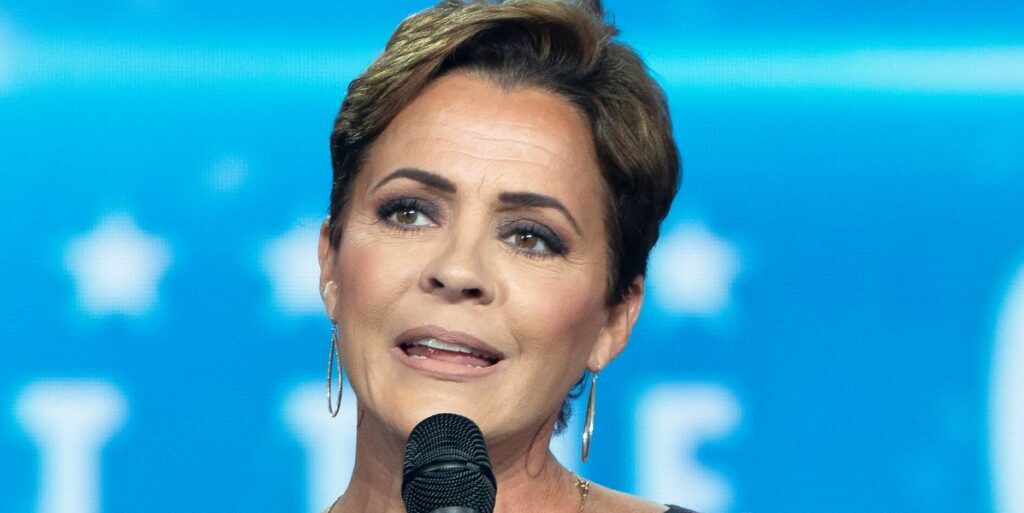In a recent debate, Republican Senate candidate Kari Lake made a notable gaffe, repeatedly referring to in vitro fertilization (IVF) as “UVF” while discussing abortion with her opponent, Rep. Ruben Gallego (D-Ariz.). The debate focused on Lake’s shifting stance on abortion rights, which has evolved from past support for stringent bans, including Arizona’s century-old law with no exceptions for rape or incest, to a more lenient position as she campaigns for the Senate. Historically, many Republicans have echoed this veering away from stringent anti-abortion positions, possibly as they seek broader electoral appeal.
Lake, who emphasized her own experiences growing up in a large family as the youngest of nine, framed her remarks to highlight her connection to women’s rights, stating, “I want to ensure we have the choice of what our abortion law is in the state of Arizona.” Despite her earlier conservative stances on abortion, Lake’s current positioning reflects a strategic pivot to appeal to voters who prioritize reproductive rights, particularly in light of ongoing debates surrounding the accessibility of health care and women’s reproductive choices.
Her comments on the importance of “UVF” reflect a larger national discourse on fertility treatments and reproductive technology. Following the U.S. Supreme Court’s 2022 decision to overturn Roe v. Wade, many states have seen an uptick in restrictive laws concerning reproductive issues, which have caused concern for advocates of reproductive health. The Arizona Supreme Court’s ruling that frozen embryos can be classified as children has heightened awareness around this topic. Consequently, Senate Democrats have attempted to introduce legislation aimed at safeguarding fertility treatments like IVF on a national level. However, these efforts have been thwarted by Republican opposition, which argues that such protections are unnecessary.
Gallego, who criticized Lake for her flip-flopping on abortion rights, reiterated his commitment to restoring the protections afforded by Roe v. Wade. His critique underscored the disparity he perceives between the rights of women and those of their children, conveying shock that his young daughter possesses fewer rights than the women in his life. This sentiment reflects broader concerns among Democratic candidates regarding the implications of restrictive abortion laws on women’s rights.
In his rebuttal, Gallego aimed to delegitimize Lake’s credibility, specifically pointing to her persistent claims about her defeat in the 2022 Arizona gubernatorial race, which she continues to contest. By highlighting this aspect of Lake’s narrative, Gallego sought to emphasize her perceived untrustworthiness, questioning why voters should rely on her judgment when she appears unwilling to accept the truth of her electoral outcome.
Overall, the debate encapsulated key issues at the forefront of the 2024 Senate race, including reproductive rights, the reliability of candidates, and the evolving political landscapes surrounding significant social issues. As candidates engage in discourse around such critical matters, the stakes become increasingly high, with implications that could resonate far beyond Arizona, influencing national attitudes toward reproductive health and women’s rights in the wake of changing legal frameworks.

